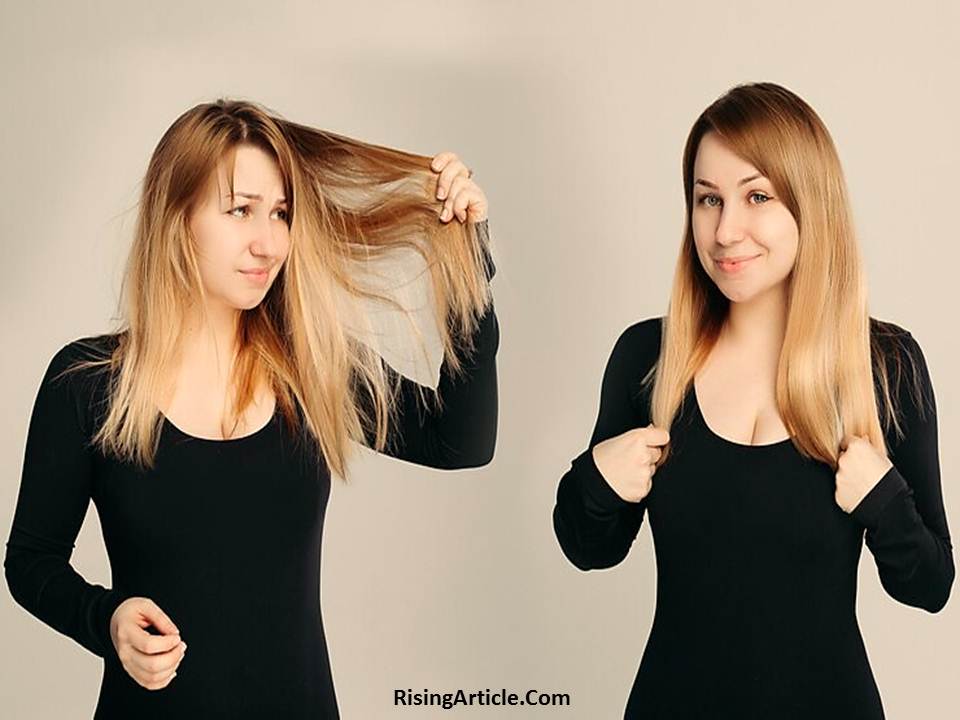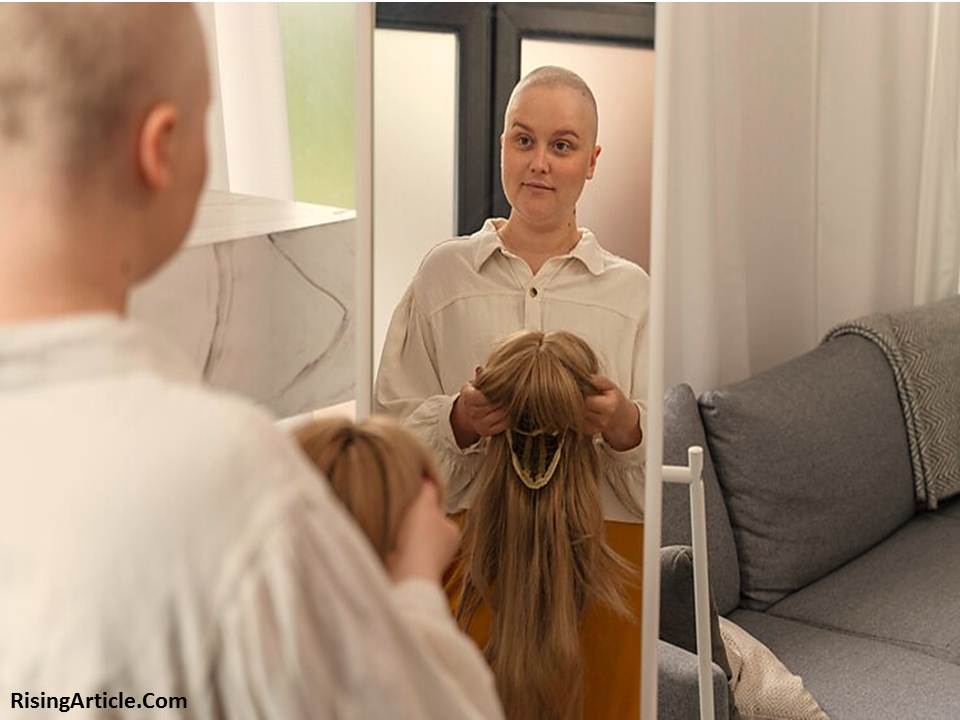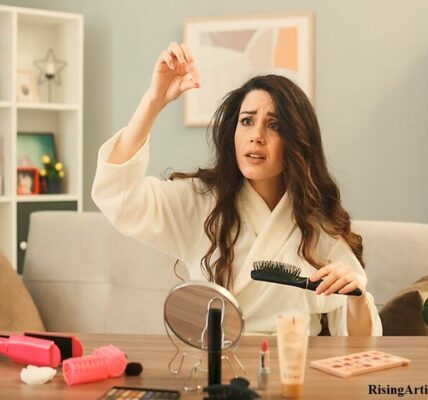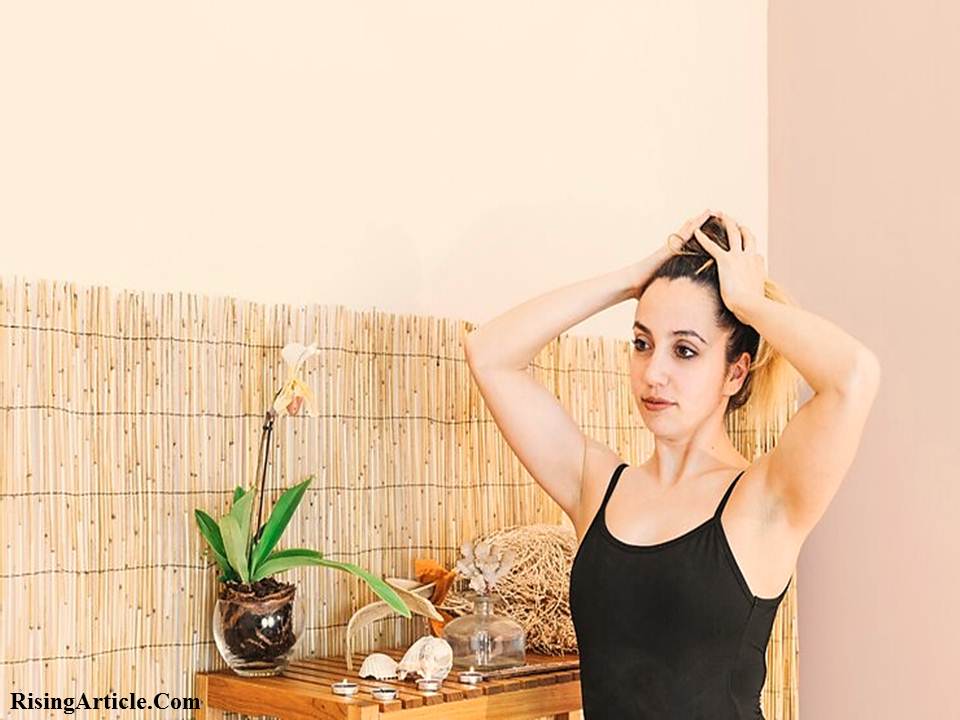Loss of hair may be a challenging and unpleasant experience for women, and it may have an effect not only on their physical appearance but also on their self-esteem and confidence. This is because hair loss can have an impact on all of these categories. Due to the fact that hair loss can have an impact on all of these facets of a woman’s life, this is the case. There are a variety of treatments that may be utilized in order to address this problem and bring back the health and vitality of the locks. The good news is at this point. Within the scope of this all-encompassing guide, we will investigate the most effective treatments for hair loss in women, with the goal of assisting you in making a decision that is well-informed. We are going to take into account both medical and natural remedies, and we are going to investigate the treatments that have proven to be the most successful.
Understanding the Causes
 Before delving into the various treatments, it is essential to have a solid understanding of the various factors that might lead to hair loss in women. Before beginning the therapies, it is necessary to have this particular understanding. A number of factors, including hormonal fluctuations, genetics, nutritional inadequacies, stress, and physical conditions, are among the most prevalent factors that lead to the development of this syndrome. In addition to these factors, stress is another factor that contributes to this illness. Before beginning the process of selecting an appropriate treatment, it is vital to first determine the underlying cause of the problem that is being considered.
Before delving into the various treatments, it is essential to have a solid understanding of the various factors that might lead to hair loss in women. Before beginning the therapies, it is necessary to have this particular understanding. A number of factors, including hormonal fluctuations, genetics, nutritional inadequacies, stress, and physical conditions, are among the most prevalent factors that lead to the development of this syndrome. In addition to these factors, stress is another factor that contributes to this illness. Before beginning the process of selecting an appropriate treatment, it is vital to first determine the underlying cause of the problem that is being considered.
Best hair loss treatment for female
 The most successful treatment for hair loss in females is reliant on the underlying cause of the hair loss. This is due to the fact that individual reactions may differ, making it critical to determine the most appropriate treatment. In the event that you are interested in determining the approach that is going to be the most successful for your specific situation, it is imperative that you consult with a healthcare practitioner or a dermatologist. On the other hand, the following are some treatments for hair loss in women that have been shown to be beneficial and are recommended by a large number of researchers:
The most successful treatment for hair loss in females is reliant on the underlying cause of the hair loss. This is due to the fact that individual reactions may differ, making it critical to determine the most appropriate treatment. In the event that you are interested in determining the approach that is going to be the most successful for your specific situation, it is imperative that you consult with a healthcare practitioner or a dermatologist. On the other hand, the following are some treatments for hair loss in women that have been shown to be beneficial and are recommended by a large number of researchers:
Minoxidil – The Gold Standard
It is one of the treatments that is prescribed the most frequently for the treatment of female hair loss, and one of the treatments that is prescribed is minoxidil, which is a topical solution. The amount of blood that flows to the hair follicles is increased, which in turn supports the growth of hair due to the increased blood flow. The product may be acquired without the need for a prescription, it is easy to use, and it has been shown to have positive results in a number of clinical studies. If you use the product on a regular basis and make sure to follow the instructions, you may notice noticeable results within a few months.
Low-Level Laser Therapy (LLLT)
 When it comes to stimulating hair follicles, low-level laser therapy (LLLT) is a treatment that does not include any intrusive procedures and makes use of light-emitting diodes (LEDs) or low-level lasers. LLLT is also one of the most effective treatments available. However, in addition to being offered in laser combs, helmets, and hats, it is also accessible in a broad variety of other variants. Low-level laser treatment (LLLT) has been shown to have the capacity to stimulate hair growth, and it is seen as a risk-free alternative that has few adverse effects. This is something that has been established.
When it comes to stimulating hair follicles, low-level laser therapy (LLLT) is a treatment that does not include any intrusive procedures and makes use of light-emitting diodes (LEDs) or low-level lasers. LLLT is also one of the most effective treatments available. However, in addition to being offered in laser combs, helmets, and hats, it is also accessible in a broad variety of other variants. Low-level laser treatment (LLLT) has been shown to have the capacity to stimulate hair growth, and it is seen as a risk-free alternative that has few adverse effects. This is something that has been established.
Nutritional Supplements
The fact that I am suffering from dietary inadequacies is one of the possible explanations for the phenomenon of my hair loss. It is possible that the consumption of nutritional supplements that are abundant in the vitamins, minerals, and amino acids that are necessary for the upkeep of healthy hair could prove to be advantageous. These kinds of nutrients include, for instance, biotin, iron, and omega-3 fatty acids. Other examples include various other nutrients. For the purpose of determining the exact dietary requirements that you have, it is strongly recommended that you seek the guidance of a healthcare practitioner.
Platelet-Rich Plasma (PRP) Therapy
Platelet-rich plasma is then injected into the scalp of the patient after an extremely little amount of the patient’s blood is collected, treated to concentrate the platelets, and then injected into the scalp of the patient. Platelet-rich plasma therapy, sometimes known as PRP, is the name given to this procedure. Taking advantage of the inherent healing powers that the body possesses, this method is designed to encourage the development of hair in order to achieve the desired result. There are particular research that point to positive outcomes for women who have particular sorts of hair loss, and these studies are being carried out despite the fact that the investigations into the study are still in progress.
Prescription Medications
A small number of drugs available only through a doctor’s prescription have been shown to be effective in the treatment of female pattern hair loss. These pharmaceuticals are ready to be purchased by customers. Spironolactone and finasteride are two of the drugs that are included in these therapeutic regimens. Regardless of the specifics of the situation, it is essential to keep in mind that these medications have the potential to have adverse effects. As a result, it is strongly recommended that they be taken under the supervision of a qualified medical practitioner.
Aromatherapy and Essential Oils
 Aromatherapy and essential oils are two examples of natural therapies that some women opt to explore as alternatives to conventional treatments. Certain essential oils, such as peppermint, rosemary, and lavender, may have stimulating effects on the scalp. It is likely that these oils have these effects. Even though there is a lack of scientific data, a significant number of customers have indicated that their hair has been healthier and that they have experienced less excessive shedding.
Aromatherapy and essential oils are two examples of natural therapies that some women opt to explore as alternatives to conventional treatments. Certain essential oils, such as peppermint, rosemary, and lavender, may have stimulating effects on the scalp. It is likely that these oils have these effects. Even though there is a lack of scientific data, a significant number of customers have indicated that their hair has been healthier and that they have experienced less excessive shedding.
Conclusion:
It is necessary to take into consideration the specific type of hair loss and the underlying cause of the condition in order to select the most efficient treatment for hair loss in women. Individual characteristics and preferences must also be taken into consideration. A holistic approach, which involves not just medical treatments but also changes in lifestyle and dietary aid, is typically recommended when it comes to achieving the greatest possible results.
This is because it is more likely to produce the desired results. In order to develop a personalized strategy that is tailored to your individual requirements or preferences, it is essential to have a conversation with a healthcare expert or a dermatologist. If you want to be successful in treating hair loss, it is important to keep in mind that patience is necessary, as it may take some time before you see any noticeable improvements, and that consistency is essential.




